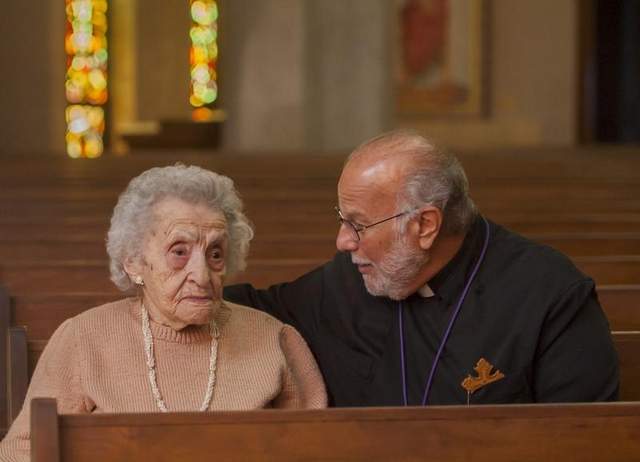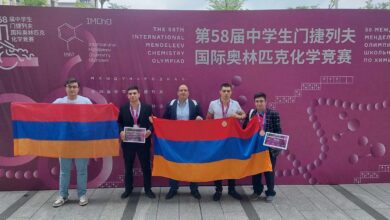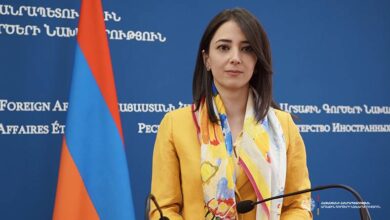
Ramela Carman was just a baby in 1915, when the Turkish government began exterminating Armenians or exiling them to other parts of the Ottoman Empire. Her father was a skilled tradesman who had to flee for his life, leaving his family behind and disguising himself as a Turk in order to survive, The Detroit News writes.
“My father, for a long time, we know he’s someplace but we don’t know where he is,” said Carman, who turns 100 today and taught herself English after moving to Michigan in 1960. “He had to grow a beard and he (changed) his name.”
Later on, Carman’s family was reunited, but her father died of kidney failure soon after, forcing Carman to starting working at age 12 sewing men’s shirts. The Livonia resident has spent her entire life working. Working and surviving.
As the 99th anniversary of the Armenian genocide in Turkey approaches, churches across Metro Detroit are preparing to memorialize those who were lost and those like the Carman family who suffered.
Parishioners from four Metro Detroit churches will hold a commemoration ceremony at 7 p.m. April 24 at St. Sarkis Armenian Apostolic Church in Dearborn.
The commemoration will capture stories of the hardships, like those in the Carman family’s life. The stories leave Ramela Carman’s great-niece Lydia Doyon in awe.
“I don’t think a lot of people know it happened to the Armenian people. Especially my generation and younger,” said Doyon, a BrandonTownship resident. “I try to instill that into my kids, how fortunate they are.”
As for Carman, she says she has never forgotten the genocide and the impact on her life.
“My father’s brothers, my mother’s brothers, all gone. My family, all gone. Still I don’t believe it. This is Armenian life.”
The commemoration ceremony will include a requiem service and parishioners will go outside to light candles near a monument for the martyrs, said the Rev. Hrant Kevorkian, pastor of St. Sarkis.
Asya Titova’s life reads like a history book, which isn’t surprising for someone who has survived two world wars and two genocides, The Detroit News continues.
The 102-year-old was a toddler when her family fled Turkey seeking protection from the genocide in Russia. By the 1980s, she was living in Baku, Azerbaijan, when tensions between the country and Armenia exploded into mass killings.
In 1990, together with her son’s family, Titova moved to Lansing.
“She shows us the old pictures, goes through the stories,” said Titova’s granddaughter, Araksina Titov. “We as Armenians try to educate people about genocide. To me, what this means is we should learn from it and try to prevent it from happening in the future.”
Today Titova is living in a senior home in East Lansing, with her family close by. Her birth certificate says she is 100 but she is 102 because her papers were filled out incorrectly when the family fled Turkey.
She’s hard of hearing and speaks only Armenian and Russian, but she is determined to be as independent as possible. She’s always had a strong spirit, said her daughter-in-law Tatyana Titov.
During World War II, Titov’s home was taken over by Nazi officers, for whom she cooked and cleaned. In return, they protected her family and gave her meat and delicacies like chocolate. While that was going on, Titova was hiding two Jewish families in the basement.
“All the time, I told her, ‘Why did you do it, Mom?’ said her daughter-in-law. “She says, ‘What can I do? They are people, too. We all want to live.”








